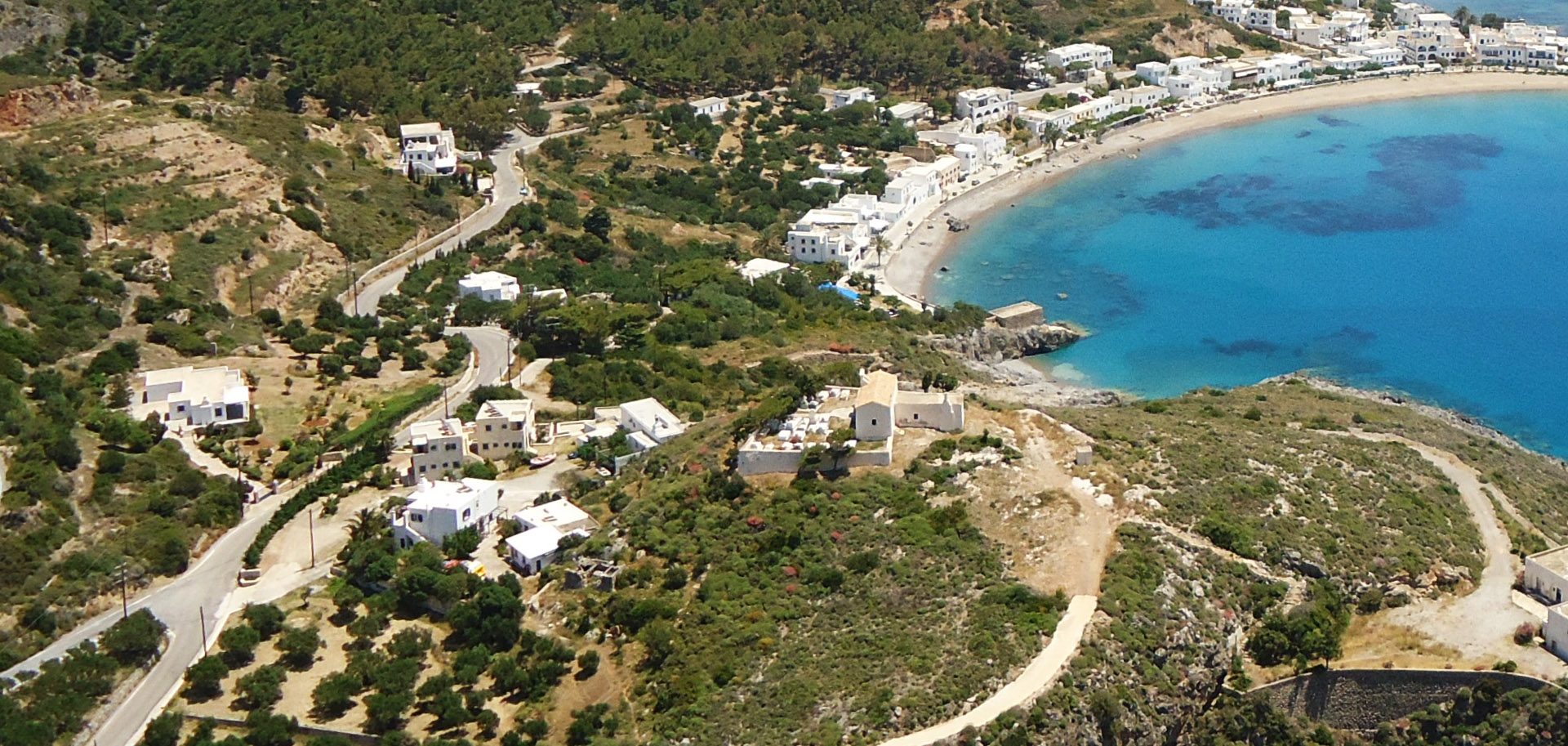Cythera: Mythical Beauty And The Island That Inspires
Table of Contents
- Cythera's Mythological Stage: The Birthplace of Aphrodite
- Unveiling Cythera: A Geographical and Historical Tapestry
- The Allure of Cythera: A Hidden Gem Revealed
- Cythera Through the Seasons: A Landscape of Ever-Changing Beauty
- Beyond the Shores: Exploring Cythera's Unique Aspects
- Cythera's Artistic Legacy: A Muse for the Ages
- Planning Your Journey to Cythera: Tips for the Discerning Traveler
Cythera's Mythological Stage: The Birthplace of Aphrodite
The very name "Cythera" resonates with ancient mythology, particularly its profound connection to Aphrodite, the Greek goddess of love, beauty, pleasure, and procreation. According to Hesiod's *Theogony*, it was off the shores of Cythera that Aphrodite emerged from the sea foam, born from the severed genitals of Uranus. This mythical origin cemented Cythera's status as a primary cult center for the goddess, making it a sacred site for those seeking her blessings. Indeed, "Cythera" (Κυθήρα) or "Cytherias" (Κυθηριάς) were different forms of a surname for Aphrodite, derived either from the town of Cythera in Crete or, more prominently, from the island itself. This deep mythological root transforms the island into a perpetual stage where the drama of divine beauty unfolds. One could say that Aphrodite herself was the ultimate "Cythera actress," her very essence embodying the island's captivating charm and inspiring countless tales of love and allure. The island's landscapes, its pristine waters, and its gentle breezes seem to whisper tales of the goddess, inviting visitors to experience a beauty that transcends the ordinary.Unveiling Cythera: A Geographical and Historical Tapestry
Geographically, Cythera holds a unique and strategic position. It is the southernmost and easternmost of the Ionian Islands, located off the southern Peloponnesus (Pelopónnisos). Despite its Ionian affiliation, its proximity to Crete and the Peloponnese gives it a distinct character, blending influences from various regions. Administratively, it is an *eparkhía* (eparchy) of Attiki Nomós (department), linking it politically to Athens, yet maintaining its remote, independent spirit. Throughout its long history, Cythera has been a crossroads of civilizations. Its strategic location made it a coveted prize for various powers, including the Venetians, whose influence is still visibly etched into the island's architecture and culture. Venetian castles dot the landscape, standing as silent sentinels guarding centuries of history. These historical layers contribute to the island's rich tapestry, offering visitors a journey through time, from ancient myths to medieval strongholds and beyond.The Allure of Cythera: A Hidden Gem Revealed
Kythira, also spelled Cythera, is truly a hidden gem nestled between the Peloponnese and Crete. It masterfully blends Venetian castles, picturesque villages, and unspoiled beaches with authentic Greek traditions. Unlike some of its more heavily touristed neighbors, Cythera has managed to retain its genuine character, offering an experience that feels both intimate and profoundly authentic. The island's charm lies in its understated beauty. Its villages, often perched on hillsides or nestled in valleys, exude a timeless appeal with their traditional architecture and welcoming atmosphere. The beaches, ranging from secluded coves with crystal-clear waters to more expansive sandy stretches, remain largely untouched, providing tranquil havens for relaxation and contemplation. For those seeking an escape from the bustling crowds and a deeper connection with Greek culture, Cythera delivers an unparalleled experience steeped in natural beauty and history. It's a place where you don't just visit; you immerse yourself.Cythera Through the Seasons: A Landscape of Ever-Changing Beauty
Kythira is a place worth discovering at all seasons, each offering a distinct charm and a new perspective on its captivating landscapes. The island's natural beauty is not static; it transforms with the rhythm of the year, much like a seasoned "Cythera actress" adapts her performance to different roles. From the colorful spring that paints the hills with millions of vibrant wildflowers, creating a breathtaking tapestry of hues, to the blurred, ethereal image of the "katsifara" (a local phenomenon of mist or fog) of autumn, the same landscape reveals different facets of its character. Summer brings the warmth and the allure of its pristine beaches, while winter, though quieter, offers a serene beauty, perfect for those seeking solitude and introspection amidst the island's rugged charm. This cyclical transformation ensures that every visit, regardless of the time of year, offers a unique and memorable encounter with Cythera's ever-evolving splendor.Beyond the Shores: Exploring Cythera's Unique Aspects
Kythera is an unique island in many respects, extending far beyond its celebrated beaches and mythological roots. Through exploration, visitors will find out why this island stands apart. Like a well-crafted website with many aspects and "hidden" beauties waiting to be "discovered," Cythera reveals its layers to those willing to delve deeper.Architectural Wonders and Cultural Heritage
The island's history is visibly etched into its architectural landscape. Beyond the prominent Venetian castles, such as the one in Chora, the island's capital, visitors will find a wealth of traditional houses, Byzantine churches, and even ancient ruins. Each structure tells a story of the island's past inhabitants, their struggles, triumphs, and daily lives. The blend of Venetian, Byzantine, and traditional Greek architectural styles creates a unique visual language that speaks volumes about Cythera's diverse cultural heritage. Exploring these historical sites offers a tangible connection to the island's rich past and its enduring spirit.Natural Wonders and Outdoor Pursuits
Cythera's natural environment is as diverse as its history. Beyond the popular beaches, the island boasts a rugged interior crisscrossed with hiking trails leading to hidden waterfalls, lush gorges, and panoramic viewpoints. The flora and fauna are rich and varied, offering opportunities for nature enthusiasts to explore unique ecosystems. From the dramatic cliffs that plunge into the Aegean to the fertile valleys dotted with olive groves, Cythera's natural wonders provide a stunning backdrop for outdoor pursuits, inviting visitors to connect with the island's untouched wilderness. The island truly performs as a natural spectacle, constantly revealing new wonders.Cythera's Artistic Legacy: A Muse for the Ages
The profound beauty and mythological significance of Cythera have not gone unnoticed by the artistic world. The island has served as a powerful muse for countless artists, poets, and writers throughout history. Perhaps the most famous example is Jean-Antoine Watteau's iconic painting, "Pilgrimage to the Isle of Cythera" (also known as "Voyage to Cythera"). This masterpiece, depicting a group of lovers embarking on or returning from a romantic journey to the mythical island of love, cemented Cythera's place in the collective imagination as an idyllic paradise of romance and beauty. The painting, along with numerous other artistic interpretations, highlights Cythera's role not just as a geographical location but as a powerful symbol. It represents a yearning for an idealized world, a place where love and beauty reign supreme. In this sense, Cythera itself acts as a timeless "Cythera actress," constantly inspiring new narratives, emotions, and artistic expressions. Its landscapes, its myths, and its very essence continue to captivate and ignite the creative spirit, proving that some performances are eternal.Planning Your Journey to Cythera: Tips for the Discerning Traveler
For those inspired to embark on their own voyage to Cythera, a few considerations can enhance the experience. The island is accessible by ferry from the Peloponnese (Piraeus, Neapoli, Gythio) and Crete (Kissamos), as well as by plane from Athens. Renting a car is highly recommended to fully explore the island's scattered villages, hidden beaches, and historical sites, as public transport is limited. Accommodation options range from charming guesthouses in traditional villages to boutique hotels and villas, catering to various preferences. The best times to visit are spring (April-May) for the wildflowers and mild weather, and early autumn (September-October) for warm seas and fewer crowds. Summer (June-August) is popular for beach lovers, but can be hotter and busier. When visiting, embrace the authentic Greek traditions. Savor the local cuisine, renowned for its fresh ingredients and unique flavors, often incorporating local honey and olive oil. Engage with the friendly locals, who are often eager to share stories and recommendations. Cythera offers more than just a vacation; it offers an immersion into a way of life that is deeply connected to history, nature, and the enduring spirit of Greece.Conclusion
Cythera, whether known as Kythira or the mythical isle of Aphrodite, is far more than just another Greek island. It is a destination that embodies a profound blend of ancient mythology, rich history, and unspoiled natural beauty. From its legendary status as the birthplace of Aphrodite to its Venetian-influenced architecture and its ever-changing seasonal landscapes, Cythera truly performs a captivating role on the stage of the Aegean. It invites travelers to step away from the beaten path and discover its hidden charms, to immerse themselves in authentic Greek traditions, and to be inspired by a landscape that has fueled artistic imagination for centuries. If you seek a destination that offers both tranquility and profound cultural depth, Cythera awaits your discovery. We encourage you to share your thoughts on this enchanting island in the comments below, or perhaps plan your own pilgrimage to this remarkable "Cythera actress" of the Greek islands. Explore more of our articles to uncover other hidden gems of the Mediterranean!
Cythera | Cycladic Island, Mythology, Ancient Ruins | Britannica

Cythera | Yachts & Villas in Greece

Cythera by JakubJames